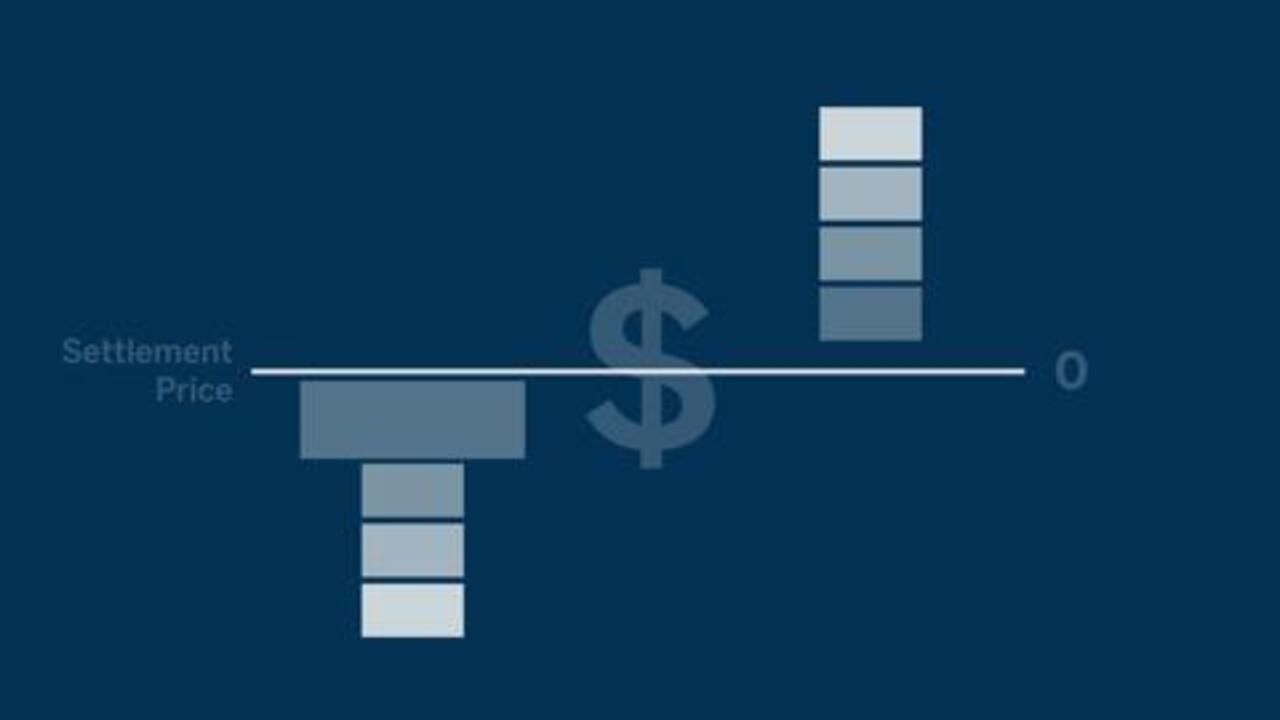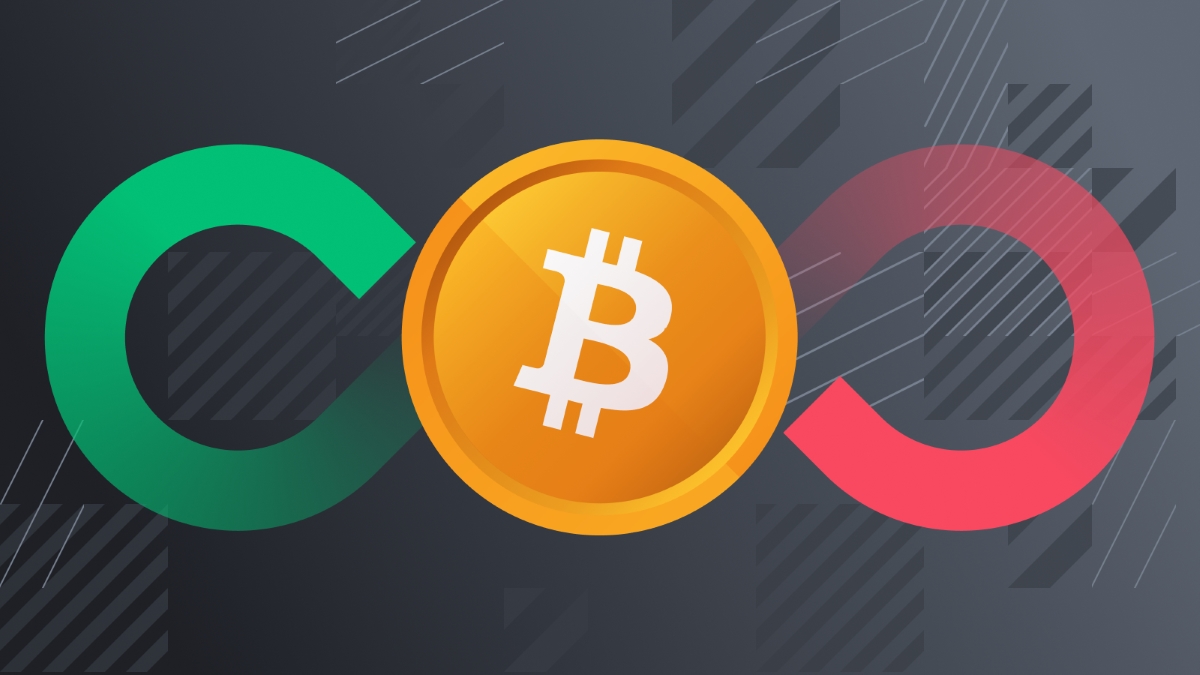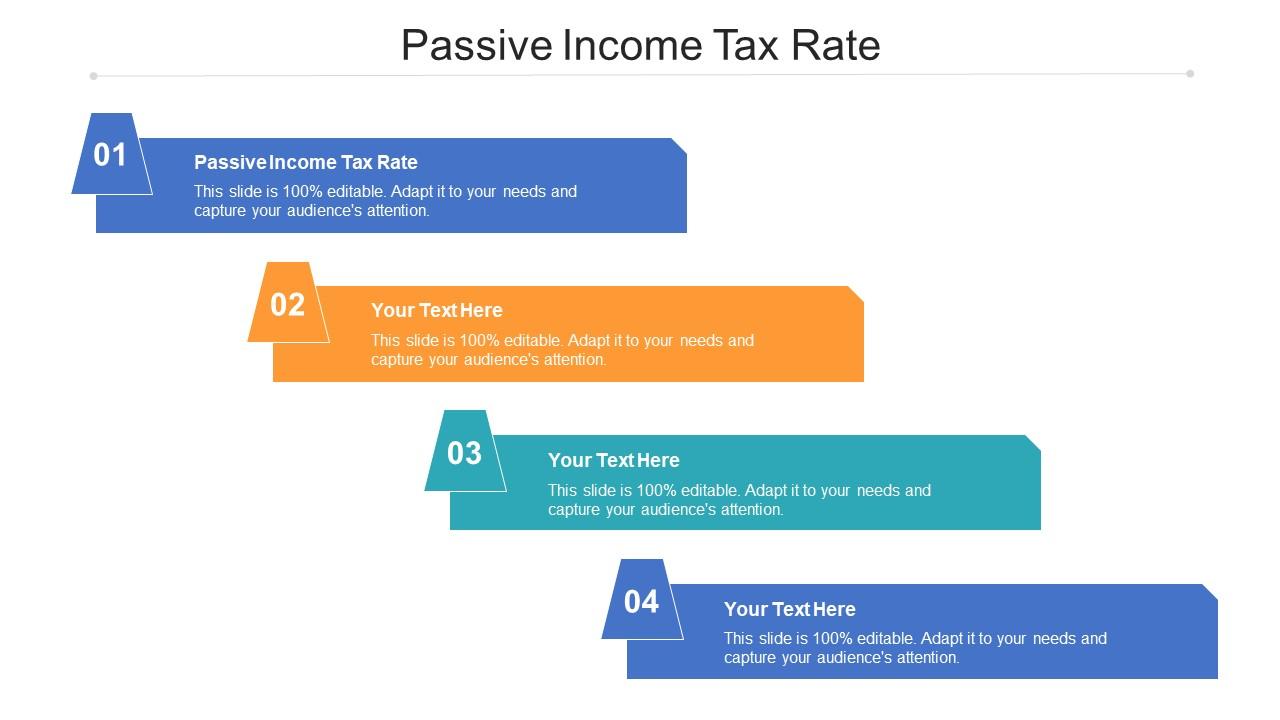

Finance
What Are Bitcoin Futures Contracts?
Modified: February 21, 2024
Learn about Bitcoin futures contracts and how they work in the finance industry. Discover the opportunities and risks associated with trading these derivatives.
(Many of the links in this article redirect to a specific reviewed product. Your purchase of these products through affiliate links helps to generate commission for LiveWell, at no extra cost. Learn more)
Table of Contents
- Introduction
- Definition of Bitcoin Futures Contracts
- How Bitcoin Futures Contracts Work
- Benefits of Bitcoin Futures Contracts
- Risks and Challenges Associated with Bitcoin Futures Contracts
- Comparison between Traditional Futures Contracts and Bitcoin Futures Contracts
- Regulation and Oversight of Bitcoin Futures Contracts
- Conclusion
Introduction
Welcome to the world of Bitcoin futures contracts! If you’re intrigued by cryptocurrencies and the potential for financial gain, then understanding Bitcoin futures contracts can be a valuable asset. In this article, we will explore the concept of Bitcoin futures contracts, how they work, the benefits they offer, the risks and challenges involved, and how they compare to traditional futures contracts.
Bitcoin, the first and most well-known cryptocurrency, has captured the attention of investors and traders worldwide. Its decentralized nature and potential for high returns have made it a popular choice for those seeking alternative investments. However, the volatile nature of Bitcoin can be a double-edged sword. While it presents opportunities for significant profits, it also carries the risk of substantial losses.
Bitcoin futures contracts were introduced as a way to manage some of the inherent risks associated with investing in Bitcoin. These contracts allow investors to speculate on the future price of Bitcoin without actually owning the underlying asset. This provides a means to hedge against price fluctuations and allows for greater flexibility in trading strategies.
In simple terms, a Bitcoin futures contract is an agreement between two parties to buy or sell a specific amount of Bitcoin at a predetermined price and future date. The contract specifies the quantity, price, and delivery date, providing a standardized framework for Bitcoin trading.
In recent years, Bitcoin futures contracts have gained popularity as they offer several advantages. They provide a regulated and transparent marketplace for Bitcoin trading, allowing for price discovery and liquidity. Additionally, Bitcoin futures contracts enable investors to take both long and short positions, potentially profiting from both rising and falling prices.
However, Bitcoin futures contracts also come with their fair share of risks and challenges. The volatile nature of Bitcoin can amplify losses and lead to margin calls. It’s essential for traders to have a deep understanding of Bitcoin’s price dynamics and market trends before engaging in futures trading.
While Bitcoin futures contracts share similarities with traditional futures contracts, there are some crucial differences. The oversight and regulation of Bitcoin futures contracts are relatively new and evolving, posing unique challenges for market participants and regulators alike.
Our aim in this article is to provide you with a comprehensive understanding of Bitcoin futures contracts. By the end, you’ll have the knowledge and confidence to navigate this exciting and rapidly evolving investment landscape.
Definition of Bitcoin Futures Contracts
Before diving into the intricacies of Bitcoin futures contracts, let’s establish a clear definition. Bitcoin futures contracts are financial agreements where buyers and sellers agree to trade Bitcoin at a predetermined price and specific future date. These contracts enable investors to speculate on the future price of Bitcoin without owning the underlying asset.
Unlike spot trading, where Bitcoin is bought and sold for immediate delivery, futures contracts allow traders to take positions on the future price movement of Bitcoin. The contracts are standardized, with specific terms such as contract size, expiration date, and settlement method. This standardization creates a more structured and regulated marketplace for Bitcoin trading.
When entering into a Bitcoin futures contract, the two parties agree on a fixed price at which they will buy or sell the specified amount of Bitcoin. The transaction takes place at a future date, known as the expiration date. At this point, the buyer is obligated to purchase the Bitcoin, and the seller is obligated to deliver the agreed-upon amount.
One essential aspect of Bitcoin futures contracts is leverage. Leverage allows traders to control a significant amount of Bitcoin for a fraction of the total value. This amplifies both potential profits and losses. However, it’s important to note that leverage can significantly increase the risk involved in trading Bitcoin futures contracts and requires careful risk management strategies.
Bitcoin futures contracts are traded on futures exchanges, such as the Chicago Mercantile Exchange (CME) or the Chicago Board Options Exchange (CBOE). These exchanges provide a centralized marketplace where buyers and sellers can interact and execute their trades. The exchanges also ensure transparency and regulation, offering safeguards for investors and protecting against market manipulation.
Settlement of Bitcoin futures contracts can occur in two ways: physically and cash settled. In physical settlement, the buyer receives the actual Bitcoin upon expiration, while in cash-settled contracts, the settlement is made in fiat currency based on the price of Bitcoin at the time of expiration.
It’s important to note that Bitcoin futures contracts are derivatives. They derive their value from the underlying asset, which, in this case, is Bitcoin. Therefore, the price of a Bitcoin futures contract will closely track the spot price of Bitcoin, with potential variations due to factors such as market demand, liquidity, and market sentiment.
In summary, Bitcoin futures contracts are financial agreements that allow investors to speculate on the future price of Bitcoin without owning the actual asset. These contracts are traded on regulated exchanges and offer leverage, enabling traders to control a larger position with a smaller amount of capital. Understanding the definition of Bitcoin futures contracts is crucial before delving into their functionality and potential benefits and risks.
How Bitcoin Futures Contracts Work
Understanding how Bitcoin futures contracts work is essential to navigate the world of cryptocurrency trading effectively. While the specific details may vary depending on the exchange and contract specifications, the basic mechanics remain consistent.
When it comes to Bitcoin futures contracts, there are two primary parties involved: the buyer (long position) and the seller (short position). Both parties enter into a contractual agreement, specifying the quantity of Bitcoin, the price, and the future date of the transaction.
Let’s break down the process step by step:
- Opening the position: The buyer and seller both establish their positions by entering into a Bitcoin futures contract. The buyer takes a long position, anticipating an increase in the price of Bitcoin, while the seller takes a short position, betting on a decrease in the price.
- Margin requirement: To participate in Bitcoin futures trading, traders are required to deposit an initial margin, which is a fraction of the total contract value. This margin serves as collateral and ensures that traders have sufficient funds to cover potential losses. The specific margin requirement varies and is set by the exchange.
- Marking to market: As the price of Bitcoin fluctuates, the value of the futures contract is marked to market periodically. This means that gains and losses are settled daily, with profits credited and losses debited from the margin accounts of the respective traders. This process keeps both parties accountable and ensures that sufficient funds are available to cover losses.
- Expiration and settlement: At the expiration of the Bitcoin futures contract, it is time to settle the transaction. Depending on the type of contract, settlement can occur in two ways: physically or cash settled.
- In physically settled contracts, the buyer receives the actual Bitcoin, and the seller must deliver the agreed-upon amount. This requires the buyer to have a Bitcoin wallet to receive the digital assets physically.
- In cash-settled contracts, no physical delivery of Bitcoin takes place. Instead, the contract is settled in cash, with the difference between the contract price and the prevailing market price of Bitcoin at expiration being paid to the profitable party.
- Leverage and position management: Bitcoin futures contracts allow traders to utilize leverage. This means they can control a much larger position with a smaller amount of capital. However, it’s important to exercise caution when using leverage, as it amplifies both potential profits and losses. Proper risk management and position sizing are critical aspects of successful Bitcoin futures trading.
It’s crucial to note that Bitcoin futures contracts are regulated and traded on exchanges. These exchanges serve as intermediaries, ensuring transparency, integrity, and market liquidity. They provide a platform for buyers and sellers to enter into contracts, establish margin requirements, and settle transactions.
Overall, Bitcoin futures contracts provide a structured and regulated marketplace for investors to speculate on the future price of Bitcoin. By understanding the mechanics of how these contracts work, traders can make informed decisions and navigate the cryptocurrency futures market more effectively.
Benefits of Bitcoin Futures Contracts
Bitcoin futures contracts offer several benefits to traders and investors, making them an attractive option in the world of cryptocurrency. Let’s explore some of the key advantages:
- Price discovery and liquidity: Bitcoin futures contracts trade on regulated exchanges, providing a transparent and liquid marketplace. This allows for efficient price discovery, as buyers and sellers can interact and execute trades based on supply and demand. The liquidity of Bitcoin futures contracts enables traders to enter and exit positions more easily, ensuring that transactions can be executed at fair prices.
- Hedging and risk management: Bitcoin’s inherent volatility can pose risks for investors. Bitcoin futures contracts provide a means of hedging against price fluctuations and managing risk exposure. For example, if an investor holds a significant amount of Bitcoin, they can sell Bitcoin futures contracts to protect against potential price declines. This allows them to lock in a predetermined price and mitigate any losses in the spot market.
- Speculation and profit potential: Bitcoin futures contracts allow traders to speculate on the future price of Bitcoin without owning the underlying asset. This opens up opportunities for profit regardless of whether the market is moving up or down. Traders can take long positions, anticipating price increases, or short positions, betting on price decreases. The ability to profit from both bullish and bearish market conditions adds flexibility and potential returns to traders’ strategies.
- Increased trading flexibility: Bitcoin futures contracts offer leverage, enabling traders to control a larger position with a smaller amount of capital. This amplifies potential profits but also increases risk. Traders can choose their desired leverage level, allowing for more flexibility in trading strategies. Leverage can be particularly beneficial for experienced traders who have a deep understanding of Bitcoin’s price dynamics.
- Regulated and transparent: Bitcoin futures contracts are traded on regulated exchanges, providing a level of oversight and protection for market participants. This regulation helps to prevent market manipulation and ensures that traders operate in a fair and transparent environment. Regulated exchanges also implement risk management measures, such as margin requirements, to safeguard against excessive leverage and potential defaults.
Overall, Bitcoin futures contracts offer a range of benefits, including price discovery, liquidity, risk management, profit potential, trading flexibility, and regulation. However, it’s important to note that while these benefits can be advantageous, trading Bitcoin futures contracts still carries inherent risks. Traders should thoroughly understand the market dynamics and have a comprehensive risk management strategy in place before engaging in futures trading.
Risks and Challenges Associated with Bitcoin Futures Contracts
While Bitcoin futures contracts offer various benefits, it’s crucial to understand the risks and challenges that come with trading these financial instruments. Here are some key considerations:
- Volatility: Bitcoin is known for its extreme price volatility, which can significantly impact the value of futures contracts. The rapid price fluctuations can lead to substantial gains, but also substantial losses. It’s essential for traders to be prepared for large price swings and to have a risk management strategy in place to mitigate potential losses.
- Leverage and margin requirements: While leverage can amplify profits, it also amplifies losses. Trading Bitcoin futures contracts on margin involves borrowing funds to control a larger position. If the market moves against the trader’s position, it can result in margin calls and potential liquidation of the position. Traders should carefully consider their risk tolerance and use leverage responsibly.
- Market manipulation: Cryptocurrency markets, including Bitcoin, are still relatively new and less regulated compared to traditional financial markets. This makes them vulnerable to market manipulation and price manipulation. Traders need to be cautious and stay updated on news and market trends to identify any potential manipulation and make informed decisions.
- Regulatory uncertainty: The regulatory landscape for Bitcoin futures contracts is still evolving. Regulatory changes or new regulations could significantly impact the trading environment and market liquidity. Traders must stay informed about any regulatory developments that could affect the trading of Bitcoin futures contracts.
- Counterparty risk: Bitcoin futures contracts involve two parties: the buyer and the seller. There is a risk that the counterparty may default on the contract, leading to financial losses. It’s crucial to trade on reputable and regulated exchanges that implement proper risk management measures and have a robust mechanism to handle counterparty risk.
- Technological risks: The trading of Bitcoin futures contracts relies on technology, including trading platforms and digital wallets. Technical issues, such as system outages or security breaches, can disrupt trading and result in financial losses. Traders should choose reliable platforms with a track record of security and stability.
It’s important for traders to understand and assess these risks before participating in Bitcoin futures trading. Proper risk management strategies, staying informed about market trends, and continuously educating oneself about the cryptocurrency market can help mitigate potential risks and navigate the challenges associated with Bitcoin futures contracts.
Trading Bitcoin futures contracts requires careful consideration, experience, and a thorough understanding of the market dynamics. While the potential for profits exists, traders must also be aware of the risks involved and make informed decisions to manage those risks effectively.
Comparison between Traditional Futures Contracts and Bitcoin Futures Contracts
While Bitcoin futures contracts share similarities with traditional futures contracts, there are several key differences that distinguish the two. Let’s examine the main points of comparison:
- Underlying asset: Traditional futures contracts are typically based on commodities such as oil, gold, or agricultural products. Bitcoin futures contracts, on the other hand, are based on the price of Bitcoin. This fundamental difference in the underlying asset reflects the contrasting nature of the markets in which these contracts are traded.
- Market maturity and regulation: Traditional futures contracts have a long-established history and are traded on well-regulated exchanges. These markets have well-defined rules and established oversight mechanisms in place. Bitcoin futures contracts, being a product of the cryptocurrency market, are relatively newer, and the regulatory frameworks surrounding them are still developing.
- Liquidity and market participants: Traditional futures contracts often have higher trading volumes and a broader range of participants, including institutional investors, traders, and hedgers. Bitcoin futures contracts, while seeing increased adoption, have a smaller market size and are predominantly driven by retail investors and cryptocurrency enthusiasts.
- Price volatility: Bitcoin is known for its significant price volatility, with sharp price swings occurring within short periods. This volatility is considerably higher than in traditional futures markets, where prices tend to be more stable. Traders engaging in Bitcoin futures contracts must be prepared for heightened price fluctuations and adjust their risk management strategies accordingly.
- Trading hours: Traditional futures markets typically have specified trading hours that align with global trading sessions. Bitcoin futures, being a digital asset, are traded 24/7, allowing traders to take positions at any time of the day. This continuous trading cycle can potentially expose traders to more price movements and trading opportunities.
- Settlement method: Traditional futures contracts may be settled physically, where the physical delivery of the underlying asset occurs, or through cash settlement. Bitcoin futures contracts offer both options, allowing traders to choose between physically settling in Bitcoin or cash settlement based on the prevailing market price at expiration.
While these differences may impact how traditional futures contracts and Bitcoin futures contracts are traded, the fundamental principles of futures trading remain the same. Both types of contracts offer opportunities for speculative trading, risk management, and price hedging.
It’s essential to recognize that Bitcoin futures contracts pose unique challenges due to the cryptocurrency market’s volatility and evolving regulatory environment. Traders interested in Bitcoin futures contracts should familiarize themselves with the nuances of the cryptocurrency market and keep up-to-date with regulatory developments to make informed trading decisions.
Ultimately, the choice between traditional futures contracts and Bitcoin futures contracts depends on individual investment goals, risk tolerance, and market expertise. A diversified portfolio may include both types of contracts, allowing investors to take advantage of opportunities in different markets.
Regulation and Oversight of Bitcoin Futures Contracts
The regulation and oversight of Bitcoin futures contracts are crucial aspects of ensuring a fair and transparent marketplace for traders and investors. As the cryptocurrency market continues to evolve, regulatory frameworks are being established to provide guidelines and safeguards. Here’s an overview of the current regulatory landscape:
Regulated Exchanges: Bitcoin futures contracts are traded on regulated exchanges, such as the Chicago Mercantile Exchange (CME) and the Chicago Board Options Exchange (CBOE). These exchanges operate under the oversight of regulatory bodies and have established rules to govern trading activities. They implement measures to prevent market manipulation, ensure fair pricing, and protect the interests of market participants.
Commodity Futures Trading Commission (CFTC): In the United States, the Commodity Futures Trading Commission (CFTC) is the primary regulatory authority overseeing Bitcoin futures contracts. The CFTC is responsible for regulating commodity futures and options markets and protecting market participants against fraud, manipulation, and abusive practices. It monitors the operations of exchanges offering Bitcoin futures contracts and enforces compliance with regulatory requirements.
Securities and Exchange Commission (SEC): The Securities and Exchange Commission (SEC) plays a role in regulating certain aspects of the cryptocurrency market. While Bitcoin is considered a commodity, certain Bitcoin-related financial products, such as exchange-traded funds (ETFs) based on Bitcoin futures, may fall under the purview of the SEC. The SEC works to protect investors and maintain fair, orderly, and efficient markets.
International Regulatory Collaboration: Regulators worldwide are working collaboratively to address the challenges posed by the cryptocurrency market. Organizations such as the Financial Action Task Force (FATF) and the International Organization of Securities Commissions (IOSCO) are actively monitoring and providing guidance on cryptocurrency-related activities, including Bitcoin futures contracts. This international collaboration aims to promote consistent regulatory approaches and enhance investor protection in the cryptocurrency space.
Risk Management Measures: Regulated exchanges implementing Bitcoin futures contracts have established risk management measures to protect market participants. These measures include setting margin requirements, position limits, and conducting regular surveillance to detect and prevent market manipulation. By implementing these measures, exchanges help mitigate risk and ensure the integrity of the market.
Investor Protection: Regulatory oversight of Bitcoin futures contracts aims to safeguard the interests of investors. Exchanges must adhere to ongoing reporting requirements, provide transparent pricing information, and enforce customer protection measures. Regulatory oversight helps to instill confidence in the market and protect investors from fraudulent or unethical practices.
It’s important to recognize that the regulatory landscape for Bitcoin futures contracts is still evolving, and new regulations may be introduced to address market developments and emerging risks. Traders and investors should stay informed about regulatory updates and comply with the guidelines set forth by the relevant regulatory authorities.
By ensuring adequate regulation and oversight, the aim is to create a secure environment that encourages market participants to engage in Bitcoin futures trading with confidence. This regulatory framework promotes fair trading practices, market integrity, and the growth of the cryptocurrency derivatives market.
Conclusion
In conclusion, Bitcoin futures contracts provide traders and investors with opportunities to participate in the cryptocurrency market in a structured and regulated manner. These contracts allow for speculation on the future price of Bitcoin without owning the underlying asset. While Bitcoin futures contracts offer several benefits, including price discovery, liquidity, hedging capabilities, and profit potential, they also come with risks and challenges.
Traders need to be aware of the inherent volatility of Bitcoin and the potential for substantial price swings. Risk management strategies, including proper position sizing and leveraging limits, are vital to navigate the market successfully. It is equally important to choose reputable and regulated exchanges that enforce transparent and fair trading practices, protecting traders from market manipulation and counterparty risks.
The regulatory landscape for Bitcoin futures contracts is continuously evolving, with regulatory authorities working to establish guidelines and oversight measures. Compliance with regulatory requirements and staying updated on regulatory developments is essential for traders and investors to operate in a secure and legally compliant environment.
Whether Bitcoin futures contracts are suitable for individual traders and investors depends on their investment goals, risk tolerance, and market expertise. It is important to thoroughly educate oneself about the mechanics of Bitcoin futures contracts, market dynamics, and risk management strategies before engaging in trading activities.
As the cryptocurrency market continues to grow and evolve, Bitcoin futures contracts present a unique opportunity for individuals seeking exposure to the world of cryptocurrencies. With proper understanding, risk management, and adherence to regulatory frameworks, traders and investors can potentially benefit from the advantages offered by Bitcoin futures contracts and contribute to the ongoing development of this dynamic market.














